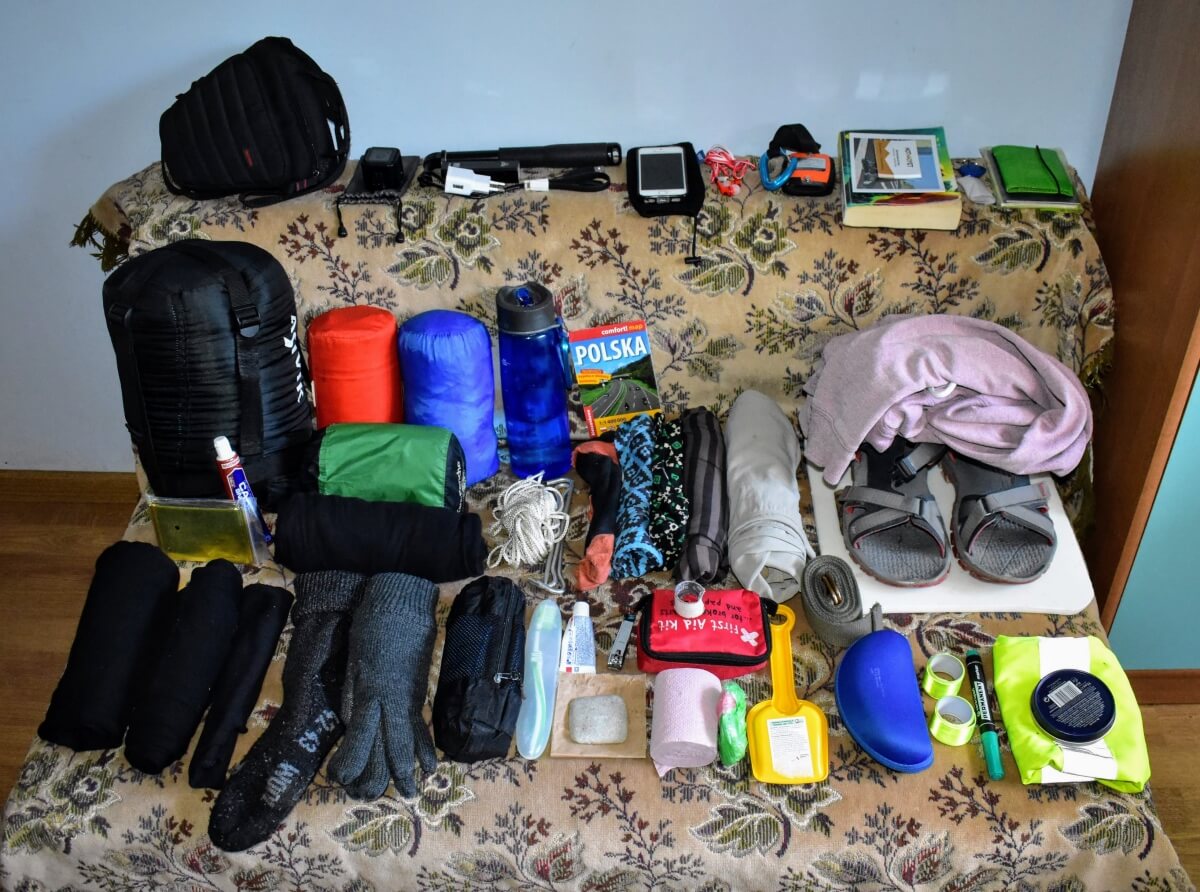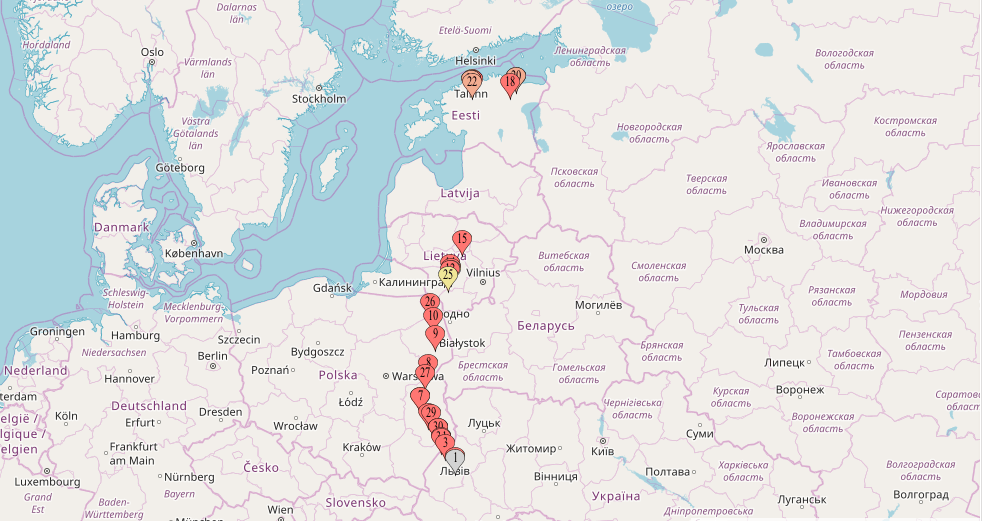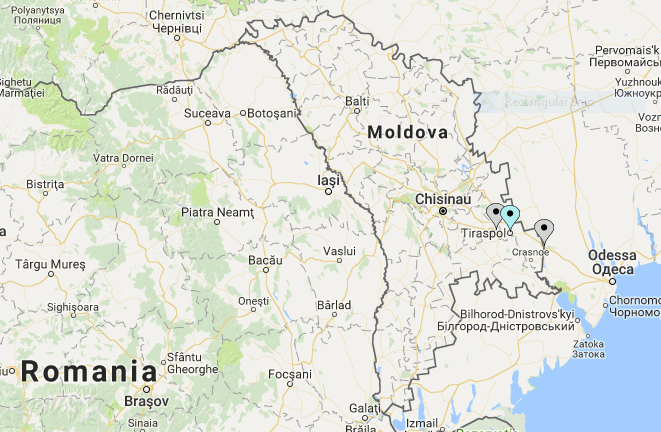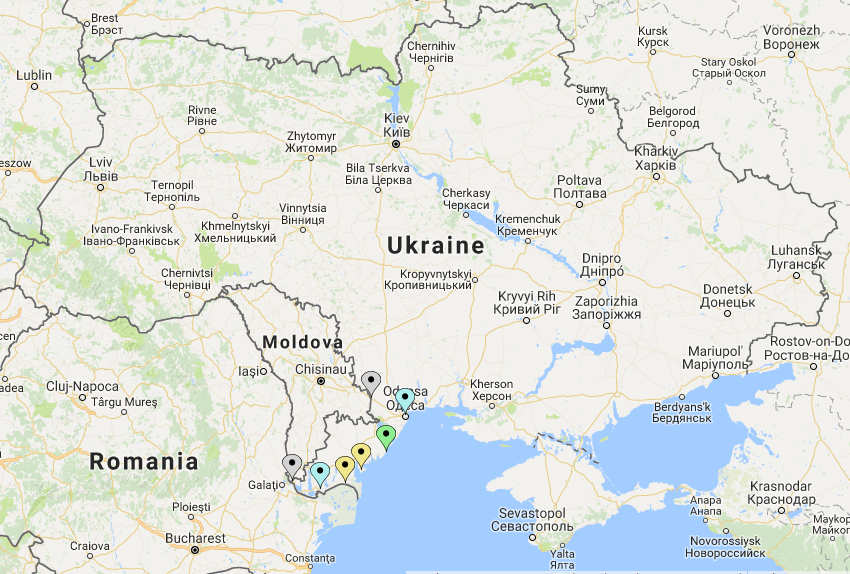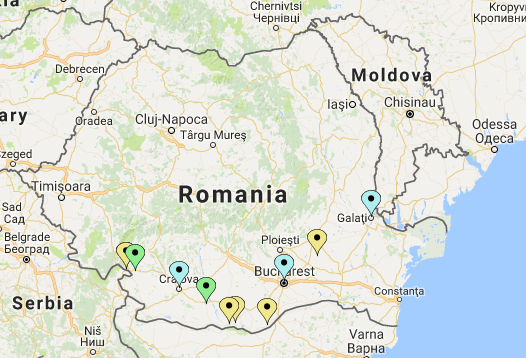What i might leave home with on an open ended backpacking journey.
UPDATED March 30th, 2019 — i reprocessed the photos, added some new ones, and also a brief note to female travelers — courtesy of my friend, and fellow globetrotter Jen!
I plan to continue experimenting and update this article whenever any significant changes or insights develop. Sign up for the mailing list if you’d like to be notified when that happens 😉
If you’d like to send me any gear to play with and review, i’d be gratefully delighted! Send me a message, and we’ll work out the details 😀
When i first started traveling long-term, i was cycle touring — weight and volume were, therefore, not much of an issue.
That was one of my biggest challenges when i started assimilating the practice of hitchhiking a little over a year ago — how could i possibly fit all that shit into my 32-liter backpack!?
After hitchhiking over 19000km across 17 countries and given a fair amount of consideration to what to carry along each of those kilometers, i have now developed a pretty sweet minimalist setup — it does eventually fit into my 32-liter backpack without compromising on luxury and self-sufficiency, including camping gear, a kitchen, and enough food for about half a week!
It even contains my (also minimalist) tree-climbing gear 😀 I added that as a nontrivial note at the end to suggest that you may, of course, replace it with the paraphernalia for your idiosyncratic hobby of choice 😉
The kit basics
- Papers — passport, residence permit, vaccination card; wallet, house keys;
- On me — pair of pants, long sleeves, underwear, pair of socks, sandals;
- Bedroom — 0°C-rated sleeping bag, sleeping mat, hammock, tarp-poncho (plus 4 lengths of accessory cord and 4 pegs); earplugs;
- Thermal comfort — wool pants and long sleeves, wool gloves and socks, balaclava;
- Washroom — toothbrush, toothpaste, travel towel, soap, nail clippers, moisturizer; toilet paper, shovel, trash bags; first aid kit (tick removal tool, Vietnamese star, sports tape and plasters, an assortment of over-the-counter medicine, wet wipes, bandages, water tablets, and eye drops);
- Gadgets — phone, action camera and selfie stick, DSLR camera and bag, earphones; power bank, respective chargers and cables;
- Hitchhiking gear — water bottle, reflective vest
and straps; hat, sunglasses, hoodie, marker; souvenirs (foreign coins, Not Mad Yet postcards, whatever . . .); - Extra — long sleeves, pair of socks, 2 pieces of underwear;
- Kitchen — stove, fuel, lighter; spork, knife, mug, pot; headlamp, sponge, tissues; food (detailed below);
- Optional — paper maps, book, fast carbs tube, emergency warm bag.
A quick note to female travelers
Females traveling long-term might also want to consider taking a stand-to-pee device and a menstrual cup
As a male, i cannot comment much further — my friend, and fellow globetrotter Jen recommends GoGirl and DivaCup. Thank you for bringing this to my awareness, Jen!
If you have any further experience or advice as a female, please comment below, and i will add them to future edits of this article 🙂
The food
The following list is more a typical example of what i might leave home with than what i would religiously seek to maintain along the way. I hope that’s implicitly understood — i will further discuss it in the remarks below, and also try to remember to snap some pictures next time i pack.
- 300g of cornmeal
- 200g of dehydrated soy
- 300g of oatmeal
- 150g of powdered milk
- 500g of trail mix
- 350g of peanut butter
- loaf of bread
- instant coffee
- salt, pepper, broth (tablets or powder), and oil
Remarks
The above is what i left home with on my last solo, freestyle hitchhiking trip — meaning, what i might have taken on an open-ended hitchhiking journey.
I often hitchhike to run errands in L’viv one city over, and occasionally on a there-and-back mission to apply for a visa in Poland, or whatever — sometimes i also travel with my partner. What i’d take on those trips would vary according to the context and duration of the stay. For example if i know i’ll reach my destination within a single day on the road and have a place to stay upon my arrival, i might replace some of my autonomy items such as the kitchen or the hammock by comfort and etiquette ones such as extra clothes, a laptop to do work, gifts, orders, etc.
More about the kitchen
If you’re traveling on a larger budget that allows you to eat out, or if you just don’t mind eating canned food or bread with peanut butter every single meal, you might as well ditch the kitchen. Besides the fact that i just enjoy a hot meal at the end of the day and the underlying ritual in the morning, it’s just a lot cheaper to cook my own food and make my own coffee.
. . . the food
Your circumstances, dietary needs and preferences will dictate what and how much of it to bring
I like to carry food that is high in calories and easy to prepare — meaning, pour some boiling water over it, cover, and let it sit for a few minutes — it saves fuel
I also like to have enough food on me for at least a couple of days without restocking — grocery shops are often a long walk from the road, or i might want to go hiking for a couple of days without an opportunity to visit one of them.
In practice, you’ll likely be offered food from some of your drivers and other folks along the way, and your supplies will last longer than you planned them to. Some drivers will also be gladly willing to swing by the groceries or anywhere else you might need — just ask 😉
. . . the thermal comfort
If you know where you’re going will definitely be warm enough, you might also do fine with a lighter sleeping bag or without the thermal layers — they were a necessity in my trip to Estonia last Summer.
. . . the optional items
My point here is, you’ll have some space for things people will make fun of you for carrying :p I got the fast carbs tube and emergency warm bag as a gift from a party of Polish paramedics returning from a course they were ministering at the border and figured i might as well keep them.
. . . the paper maps
Although i do carry offline maps on my phone as well, i like paper maps because it is much easier to get the big picture from them and discuss the route with drivers.
Moreover, paper maps never run out of battery!
. . . the books
I like passing my books on and picking new ones up along my way, so the moment i might invest in an e-reader hasn’t yet come either.
Sleeping on a hammock
Naturally, you should double check that you can find trees or something to that effect where you’re going — a hammock would have been useless to me in Iceland or the Faroe Islands!
Although i felt far more exposed than i do in a tent, and i believe this will take a little while to get used to, sleeping on a hammock turned out quite alright. Most sleeping bag models have inside pockets where you can keep your phone, wallet, and passport. If you have other valuables you don’t feel comfortable leaving hanging in your backpack outside, another option is to tuck them at bottom of your sleeping bag, which comes with the added benefit of keeping your feet warmer.
I made one serious beginner mistake. Before i left, i wasn’t expecting to feel so cold on my back. Of course, the underlying thermodynamics became obvious the second i experienced it — while i was used to having a layer of insulation between my back and the ground from my inflatable mat when sleeping in a tent, i was now floating in space with wind stealing heat from all around me. Your back will be especially vulnerable to that on a hammock, as the insulation in your sleeping bag depends largely on its fluffiness, which disappears under pressure. Don’t neglect this problem!
I still don’t know how i’ll address it. Some people recommend an under quilt — i think i’ll first try the inflatable mat i already have.
If you search for hammock camping on the Internet, you’ll find a plethora of good videos and advice from seasoned hammock campers such as this one or this other one (skip the first 6 minutes, and don’t pay too much attention to what he says about the costs — my hammock cost $15 and
Tree-climbing gear
I like to climb trees — tall trees:
Given how often people find it so strange that an adult is recreationally climbing trees, i want to clarify that i’m not sharing this assuming that you will be specifically interested in doing that yourself — my point here is, if the equipment needed for your quirky avocation of choice weights less than 5kg, you can probably bring it along as well.
In case you are indeed interested in the details, here it goes:
- 25m of 11mm, semi-static rope;
- climbing harness;
- (2x) pear-shaped locking carabiners, tubular belay/rappel device, length of 6mm accessory cord;
- (2x) daisy chains, (2x) D-shape locking carabiners, (2x) bent-gate non-locking carabiners, (2x) lengths of 6mm accessory cord; 120cm sling, small, wire-gate non-locking carabiner;
- (2x) 60cm slings, (2x) 120cm slings, (1x) 180cm sling, (4x) small wire-gate non-locking carabiners, (1x) pear-shaped locking carabiner;
- SAR insurance tracker, water bottle, (2x) small wire-gate non-locking carabiner;
- tight ballerina shorts, tight t-shirt.
I’ve been working on a new climbing technique that should allow me to drop a fair chunk of that and also be safer — i will update this section after
TREEfool, perhaps my favorite tree-climber on the Internet, has extensively experimented with minimalist tree-climbing gear for traveling/tree-camping, and i’ve gotten many good ideas from his videos. Many online shops for tree-climbing gear have minimalist kits for recreational climbers as well, and the Tree Buzz forums are a great place to ask questions about the topic.
Remarks
If you rock-climb instead, you may probably replace the semi-static rope and some of the other items by a longer length of thinner dynamic rope plus a handful of quick-draws for the sport routes along your way, while remaining at about the same weight and volume.
If you don’t even metaphorically climb trees and don’t have any unique items you need to bring along, you probably don’t need a 32–40-liter backpack either — your day pack might do, as long as it’s comfortable and has good back support. Mine is horrible, and i would never travel with it. But just for the sake of reference, this is what it looks like with all the gear listed above packed into it, except for the food and the tree-climbing equipment:
Closing thoughts
Alright, thank you for reading this far
Of course, i could have just told you what to pack and made this piece a lot shorter. Rather than telling you what to do, i prefer to help you think about what you need or want to do, and i hope i’ve accomplished some of that. Furthermore, this is work in progress, and a great excuse for me to reflect on what i carry on my back as well — at the end of the day, those are personal choices that will depend largely on your preferences and circumstances, and mine are bound to evolve as well.
I’ll be happy to answer any questions you may have about packing for long-term, self-supported backpacking — comment below or send me a message. If you’ve hitchhiked or backpacked long-term before, i’ll also be curious to learn what you carry — especially the non-essential essentials — what’s your metaphorical tree-climbing gear?
Join my weekly newsletter for more travel experiments, impressions,
and advice delivered straight into your inbox!

